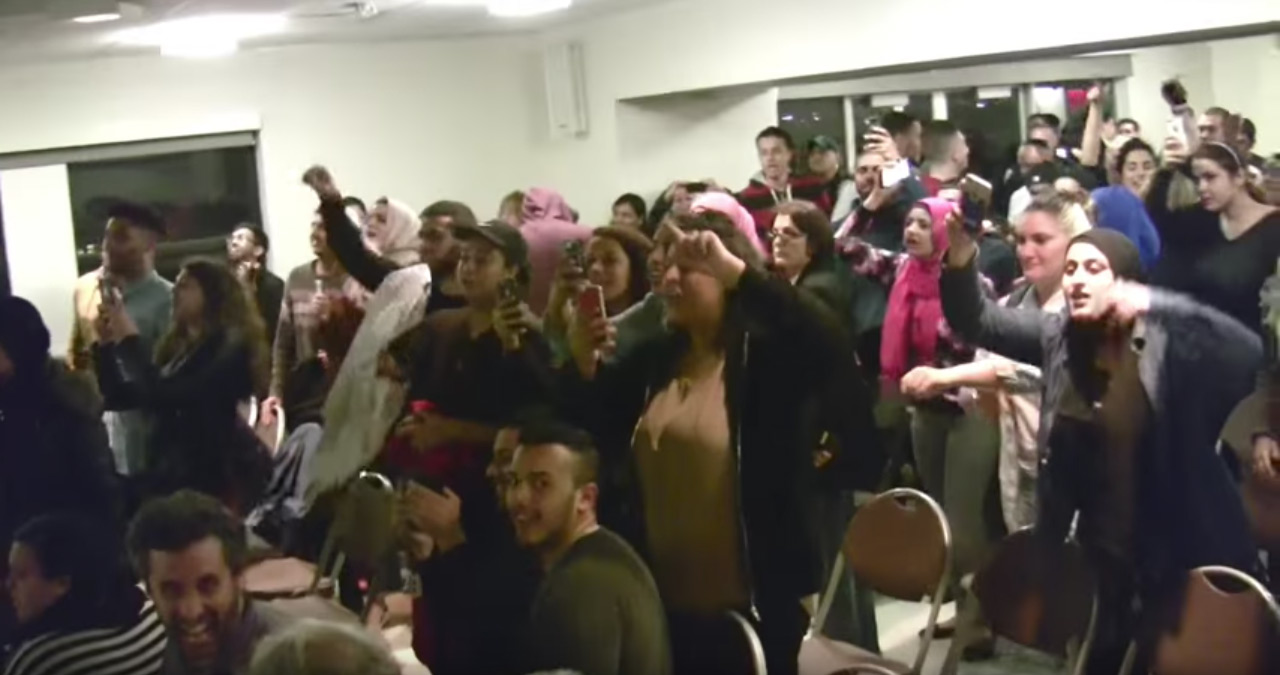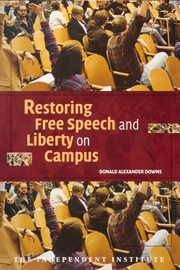With increasing frequency, especially on college campuses, speakers presenting unpopular views—or views unpopular with a vocal minority of the audience—are being disrupted or “shouted down” until they leave the stage. This has happened at my own campus and many others.
Such incidents are an embarrassment, an insult to higher education’s time-honored commitment to free and open debate, and they speak volumes about the decline of civility in society. But while they violate the spirit of the First Amendment’s free speech guarantee, if force isn’t involved it’s not clear that a constitutional violation has taken place.
According to longstanding Supreme Court doctrine, the Constitution and Bill of Rights protect us only against actions taken by government or private citizens acting on government’s behalf.
The actions of private individuals or groups are viewed as the equivalent of “state action” only when there is a clear or direct relationship between the private parties and the government.
So, from a purely legal perspective, private individuals acting on their own do not violate the First Amendment when they shout down a speaker.
They are rude and disruptive, yes. And they might be guilty of disorderly conduct or in violation of a state or local statute protecting free speech. But being loud and disruptive is not unconstitutional.
That’s the legalistic view. The decency view points in the opposite direction: that anyone who indulges in shouting a speaker down has violated the very spirit of free inquiry and common decency necessary to sustain constitutional democracy.
As the late First Amendment scholar Thomas Emerson of Yale Law School observed, “the system of freedom of expression” that has served us so well for so many years is based on a delicate balance between the rights of speakers and listeners. You have a right to respond to, or to protest what a speaker says. Civil rights protests at Ku Klux Klan rallies are a good and noble example.
But disruption and silencing are entirely different matters for a variety of sound reasons.
For starters, when you prevent a lawful speaker from presenting his or her views you deprive your fellow citizens of hearing a viewpoint they came to hear, whether they agree with it or not.
Why would anyone want to hear a point of view with which he or she disagrees? Simple. They might want to be challenged or stretch their minds. Or they might want to “know their enemy.” Maybe they simply respect the rights of others, which is necessary to the sustenance of a constitutional system.
Those who would shout down a speaker display character traits no constitutional democracy should countenance, much less encourage.
Disrupting or silencing speakers is not reminiscent of the moral authority of civil rights leaders, but of the arrogance and bullying tactics of the wearers of jackboots and the bearers of Gulag arrest warrants.
Were such behavior to become the norm—and sadly too many college authorities confuse such action with free speech these days—political discourse would become nothing less than a shouting match. The bell would toll for free speech in America.
There are those who claim that some speech is so upsetting that it “traumatizes” certain listeners who need to be protected.
This has given rise to the so-called Trigger Warning movement on campuses and the “dis-invitation” of speakers. But it’s a weak argument, assuming that such listeners lack the fortitude and wherewithal to withstand the rigors of constitutional discourse.
The ethical answer to our original question is clear. Shouting speakers down is anathema to the cardinal principles of free speech even if the First Amendment is not directly at stake. Statutory laws punishing such behavior are legitimate.









